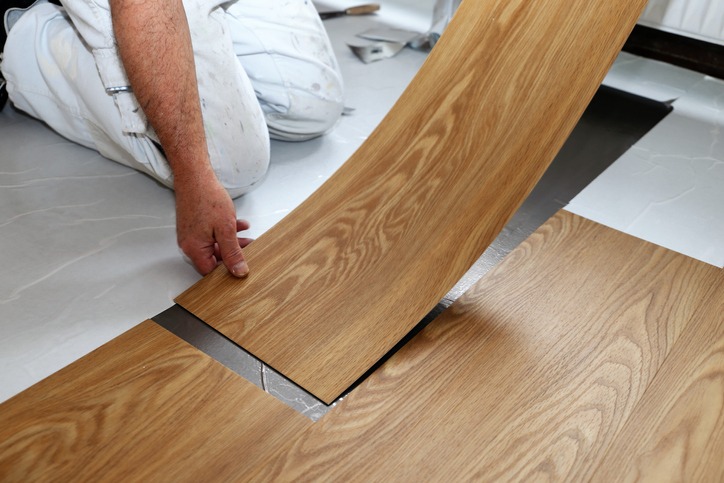Vinyl flooring has become a staple choice for many homes around the globe. With a growing demand for this flooring choice, we are here to break down all of the key characteristics that you need to keep in mind when deciding whether this is a good fit for your space.
Equipping your household with essentials and decor items comes with a huge variety of options to pick from. With fast-changing trends, greatly different prices as well as obvious market saturation, the options may seem endless at first glance.
Luckily, when it comes to flooring, you will quickly find out that vinyl flooring is high in demand for a few strong reasons. Broadly considered to be one of the best choices in terms of resilient and low-maintenance flooring, there are some pros and cons to consider.
Pros of Vinyl Flooring for Homes
In essence, this type of flooring comes as a relatively hassle-free option, offering resilience and durability, while requiring low-maintenance efforts on your end. This synthetic option is practical, successfully mimicking popular surfaces such as those of wood and stone.
Versatile in Design and Installation
While you may be tempted to think that vinyl flooring is a bland choice, that is not the case. This type of flooring is a world of its own, with a pool of patterns and colors to offer. Whether you want a modern or a traditional feel to your home, vinyl comes in a variety of designs.
As such, this choice is very versatile. It can be installed in several forms, such as in the form of tiles, sheets, and planks. Whichever option you choose, it is expected to excel in another thing that vinyl does great, which is high durability.
Highly Durable and Comfortable
If taken care of properly, you are looking at vinyl flooring lasting anywhere up to twenty years. Known as a resilient and durable choice that can withstand staining, water exposure, and moisture, another one of its benefits is that it is comfortable. There are also choices for waterproof vinyl flooring.
Unlike materials such as stone, vinyl is far more comfortable to walk on, making it an excellent choice for families and everyone who has pets. It is a gentle choice as well as an impactful one in terms of noise reduction.
Easy to Maintain and Low-cost
What plays another important role is the fact that it is not only easy to maintain but also easy to clean. It’s as easy as running a mop over the floor and, viola, it is clean again.
Unlike some other options, this one is far more inexpensive to purchase and install. Its installation is also a far easier process to do, which drives many homeowners to install it themselves, further cutting down the overall cost of flooring.
Cons of Vinyl Flooring for Homes
While vinyl flooring has many advantages, it also has a few disadvantages you want to keep in mind. Some of this might or might not be a deal-breaker for your household.
Requires Thorough Subfloor Preparation
To make sure the flooring lays down properly and lasts for the maximum amount of time, you are looking at making your subfloor near perfect before diving into the installation process.
Quality subfloor prep is essential to make sure your new flooring doesn’t end up laying on top of an imperfect surface, which, in turn, affects the vinyl floor’s durability and flatness. The last thing you want is to have a bumpy floor after diving into the process of changing floors.
Not Biodegradable
As mentioned, vinyl flooring is a synthetic type of surface, derived from PVC (polyvinyl chloride). Although it can be quite long-lasting in the right conditions, it is not biodegradable.
Its life span might be good but the production is polluting. Therefore, it is not seen as an environmentally friendly option. Be wary of the VOC (volatile organic compound) emittance risks as well. This is why you want to pay proper attention to the source of your vinyl flooring and look for the best possible and, of course, non-toxic option.
Such new floors will usually retain a new scent in the beginning, but the scent should not last forever nor cause health hazards.
Difficult to Remove
While it is easy to install, vinyl is difficult to remove. To be more precise, the glue is usually the most troublesome part. Taking it off will require a lot of time and patience.
Additionally, it might affect your household resale value if you ever come to that point. In the end, it all comes down to your personal preferences.

